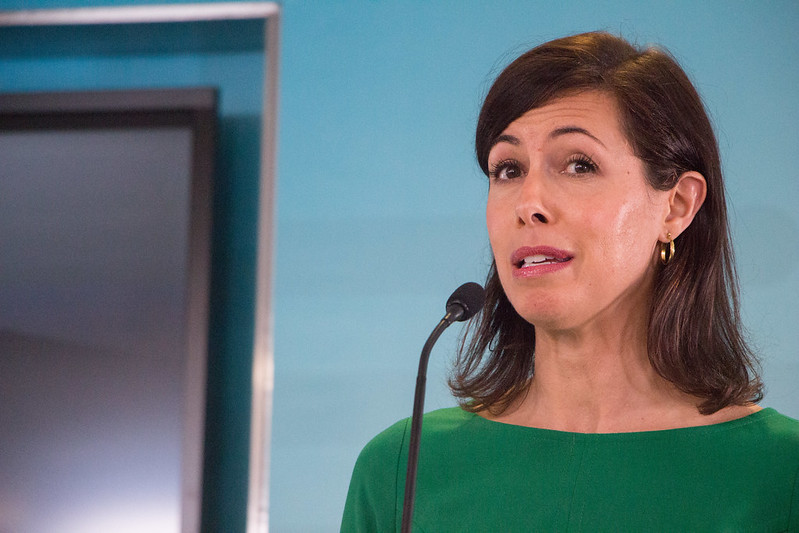Staring down the barrel of an incoming Trump administration, current chairwoman of the FCC Jessica Rosenworcel has announced she will be stepping down. In the weeks to come, many other Biden appointees will be doing the same – and the question becomes, where will these former government servants head next?
We at the Revolving Door Project have long said that high-level appointees have many options for post-government gigs that don’t involve working for corporations they once oversaw, like think tank advocacy work and, if a lawyer, just getting a normal, non-regulatory lawyer job. (Same if an engineer, a teacher, a nurse, a construction worker – return to what you trained for, which presumably was not serving as a Senate confirmed official or member of Congress). But not all government servants are leaving an agency with a revolving door as well-greased as the FCC’s. So the betting is on: where will Rosenworcel go now that she is looking for a new job?
There is some basis to believe that she will take the easy way out and find a job in the private sector she once was responsible for overseeing. Comcast, a large Democratic donor, commended Biden’s appointment of Rosenworcel to being acting chair of the FCC. When she was a commissioner, she caved to pressure from Telecom companies and decided to oppose a Democrat-backed proposal that would have required cable TV providers make their content available on third-party set-top boxes. At the same time, she has also taken some notable stances against corporate concentration and in support of net neutrality. That being said, we are currently waiting to see if she will deny the proposed $4.4 billion merger between UScellular and T-Mobile before Trump takes office and she leaves.
Before joining the FCC, Rosenworcel’s main experience in the private sector was as a communications lawyer at a firm called Drinker Biddle & Reath (now known as Faegre Drinker) in the late 1990s and early 2000s.
As an important note, her husband, Mark Bailen, is a media lawyer who worked at Baker Hostetler for over two decades before leaving in 2022 to start his own law firm, Bailen Law. Despite Rosenworcel testifying that her husband’s legal interests do not constitute a conflict of interest, Baker Hostetler’s media and telecommunications team has been involved in a number of litigation matters that certainly do run against the regulatory work that we would expect the chair of the FCC to be engaged in. It is worth questioning whether she will also look to working as a lawyer in the communications industry as a source of income.
The last several FCC chairs have leveraged their public office experiences to snag cushy jobs in the industries they had been previously regulating. Among some of the worst examples of revolvers are Ajit Pai taking a job at Searchlight Capital Partners, Julius Genachowski joining the Carlyle Group, Kevin J. Martin at Meta, and Kathleen Q. Abernathy being on the board of three different telecom companies. For a detailed overview of the hidden ties between FCC commissioners and industry, take a look at our previous work.
To her credit, Rosenworcel has a resume that is dotted with comparatively fewer private sector jobs than many of her current and former coworkers. Will she seek out a job at Wiley Rein, the preeminent FCC revolver law firm that has swooped up plenty of FCC alumni in the past? Or perhaps she’ll join Hogan Lovells, a law firm whose team has been continuously lined with people that list “FCC” on their resume in one way or another. Or maybe she will join the Resistance! While we can’t predict the future, our opinion is clear: she should find a way to make a living that does not involve converting the privilege of a high ranking public service position into profitable work undermining the public interest.

